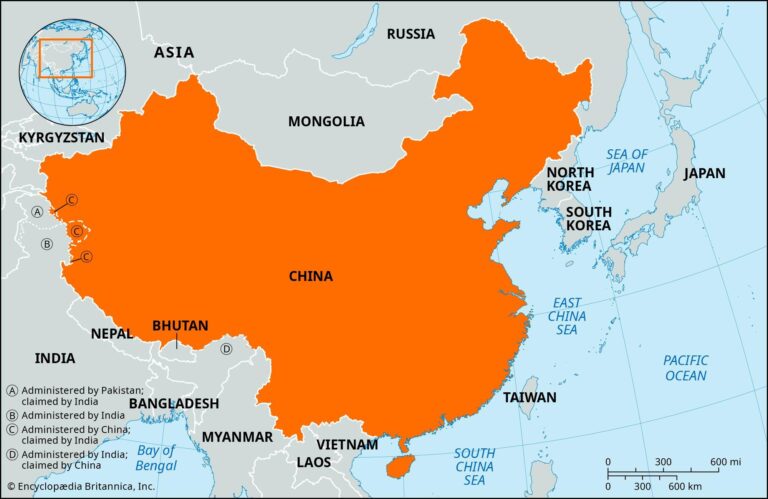China has announced it will forgo Special and Differential Treatment (S&DT) in future World Trade Organization (WTO) negotiations, Reuters reports. This move signals a significant shift in the country’s trade policy, reflecting its growing economic clout and readiness to compete on a more equal footing with developed nations. The decision is expected to have wide-ranging implications for global trade dynamics and could reshape negotiations within the WTO framework as China positions itself beyond the traditional status of a developing country.
China Signals Shift in WTO Approach by Abandoning Special and Differential Treatment
China’s announcement marks a significant turning point in its trade policy stance within the World Trade Organization (WTO). By opting out of Special and Differential Treatment (S&DT) – provisions traditionally granted to developing nations to ease their compliance obligations – Beijing signals its readiness to engage as a mature economic power on equal footing with developed markets. This shift underscores China’s confidence in its economic progress and reflects a strategic intent to reshape its global trade narrative. Experts suggest that China’s decision may prompt a recalibration of WTO rules, influencing future negotiations and relations between member countries.
Key implications of China’s move include:
- Increased responsibilities and expectations on China in WTO compliance and trade liberalization
- Potential pressure on other emerging economies to reconsider their own S&DT eligibility
- Enhanced influence of China in shaping trade norms and dispute settlement mechanisms
| Aspect | Before Foregoing S&DT | After Foregoing S&DT |
|---|---|---|
| Compliance Flexibility | Higher due to developing country status | Aligned with developed country standards |
| Negotiating Leverage | Moderate, as a developing economy | Stronger, recognized as an economic leader |
| Trade Policy Impact | Influenced by special provisions | Broadly influential in global rule-making |
Implications for Developing Nations and Global Trade Dynamics Explored
China’s decision to relinquish Special and Differential Treatment (S&DT) status marks a paradigm shift that could ripple through global trade systems, particularly impacting developing nations. Historically, S&DT provisions have granted these countries preferential access and flexibilities to balance asymmetries in economic development and trade capabilities. With China stepping away from this protection, there is mounting concern that other developing economies might be pressured to follow suit, accelerating calls for reforms in WTO frameworks that may not yet be ready to accommodate such rapid transitions.
Key factors to consider as this transition unfolds include:
- Trade Competitiveness: Smaller economies may struggle to maintain market shares without preferential treatment.
- Negotiation Dynamics: The bargaining power within WTO negotiations could shift, favoring more developed economies.
- Developmental Policy Adjustments: Countries might need to revisit domestic strategies for industrial growth under more stringent WTO rules.
| Region | Current S&DT Reliance | Potential Impact |
|---|---|---|
| Africa | High | Increased vulnerability in agri-exports |
| Southeast Asia | Moderate | Pressure to enhance manufacturing competitiveness |
| Latin America | Variable | Need to diversify beyond commodity exports |
Policy Experts Recommend Strategic Adjustments for WTO Members in Response
Policy analysts underscore that China’s decision to relinquish Special and Differential Treatment (SDT) status signals a pivotal shift in the dynamics of WTO negotiations. Experts advocate for WTO members to recalibrate their strategies to accommodate a more assertive and equal-footed China. This development amplifies calls for members to enhance transparency, streamline negotiation frameworks, and reinforce compliance mechanisms to ensure fair play across emerging trade complexities.
Recommended adjustments include:
- Enhanced collaboration on setting new benchmarks for trade fairness.
- Flexible negotiation tactics to manage increasingly sophisticated economic relationships.
- Focused capacity-building initiatives to assist developing members in adapting to a multipolar trade environment.
| Strategic Focus | Expected Outcome |
|---|---|
| Transparency Enhancements | Reduce trade distortions |
| Negotiation Flexibility | Accelerate agreement processes |
| Capacity Building | Empower developing countries |
In Summary
As China signals its intent to forego Special and Differential Treatment in future World Trade Organization negotiations, the move marks a significant shift in its trade policy stance. This decision underscores China’s growing confidence as a major global trading power and may prompt adjustments in how developing and emerging economies approach the multilateral trading system. Stakeholders worldwide will be closely watching the implications of this change on future WTO negotiations and the broader dynamics of international trade.




